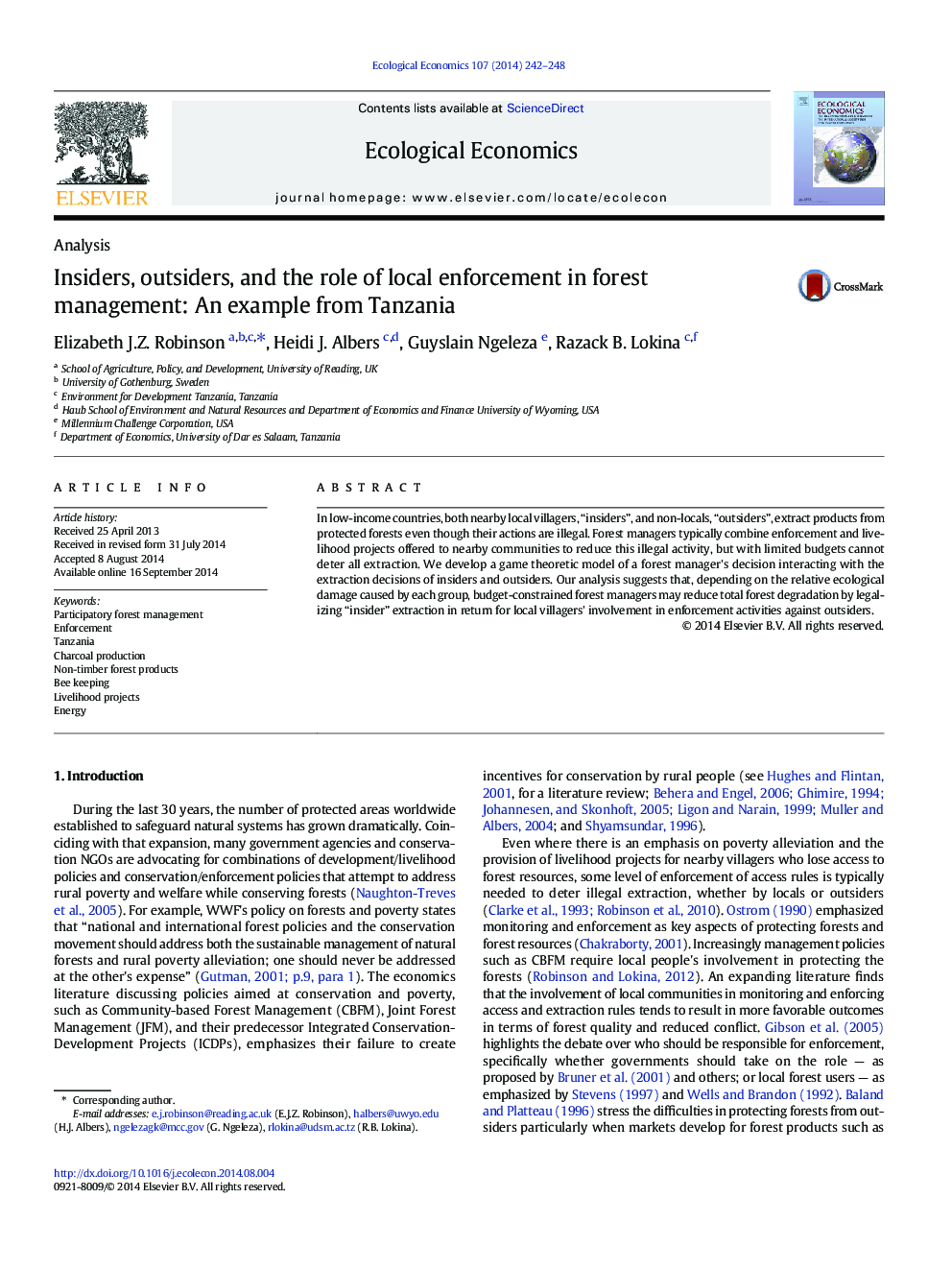| Article ID | Journal | Published Year | Pages | File Type |
|---|---|---|---|---|
| 5049519 | Ecological Economics | 2014 | 7 Pages |
â¢We develop a game theoretic model to explore forest managers' choices.â¢Our model is most pertinent to low and middle income countries.â¢We consider enforcement and livelihood projects.â¢We explicitly model both nearby “insider” villagers and “outsider” villagers.â¢We show that legalization of “insider” extraction can reduce total forest loss.
In low-income countries, both nearby local villagers, “insiders”, and non-locals, “outsiders”, extract products from protected forests even though their actions are illegal. Forest managers typically combine enforcement and livelihood projects offered to nearby communities to reduce this illegal activity, but with limited budgets cannot deter all extraction. We develop a game theoretic model of a forest manager's decision interacting with the extraction decisions of insiders and outsiders. Our analysis suggests that, depending on the relative ecological damage caused by each group, budget-constrained forest managers may reduce total forest degradation by legalizing “insider” extraction in return for local villagers' involvement in enforcement activities against outsiders.
